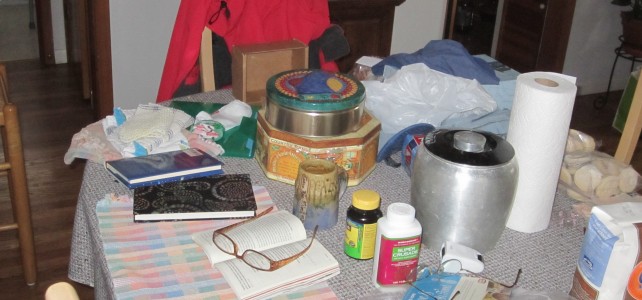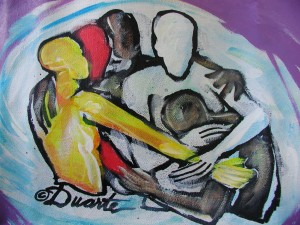
Painting by Richard Duarte Brown
I was talking with a Buddhist friend about Lent the other day. She asked if I were giving up chocolate. Her mother gives that up every year. I did when I was growing up. No wonder a big chocolate rabbit looked great in my Easter basket! “No,” I said. I hadn’t decided what I would do yet, but it would have more to do with helping me open up to God’s Grace and Presence in me and in the world that in banishing a particular food from my Lenten menu.
Not that altering my eating habits might not be on my list. Sometimes when I am tired or stressed, I resort to food to help me through. No food in particular, but at those times I usually clean out “sweet” before I go for “healthy.” Perhaps I could turn to reading a good book, or having a conversation with God before heading to the pantry. I could do something that feeds my spirit, that nurtures hope, that helps me see beauty and Presence. Those practices could bring peace and rest to a restless soul.
“My mom could give up negative ‘self-talk’,” my friend said. “She is always putting herself down.”
True. Recognizing God’s Presence in ourselves, God’s love for us, is difficult if what we see in the mirror of our mind is never good enough. Before we can experience God in the world, before we can serve and love others, we must love and appreciate ourselves. For some, the focus on “giving something up” reinforces their sense of always falling short. Of never being “enough.”
The events Lent/Easter call to mind for reflection tell us just the opposite: We are already enough. We are so “enough” that the Holy Mystery wants to dwell within us. Wants to walk our difficult paths through life as a companion and support. Walking the earth, Jesus showed us just how “enough” every person is. “Enough” to love. “Enough” to die for rather than betray.
I’m not saying giving up chocolate is off the table. Self-discipline starts in little ways. It should lead to other things. To being able to look at ourselves, at those in our lives, at those suffering in our country and around the world…To be able to look at those who are different than we are and to see everyone of us as God does: Gloriously enough. And then, somehow through how we live our lives, letting them know.


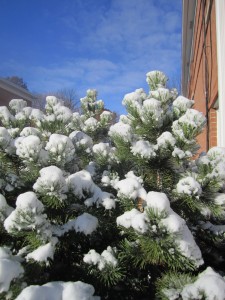




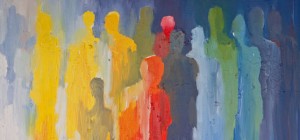 “…but there is one among you whom you do not recognize...” Today’s gospel reading Jn 1, 26b
“…but there is one among you whom you do not recognize...” Today’s gospel reading Jn 1, 26b
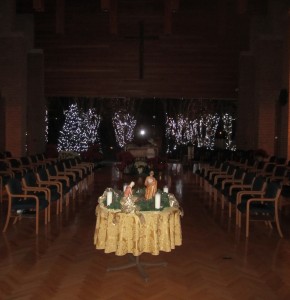

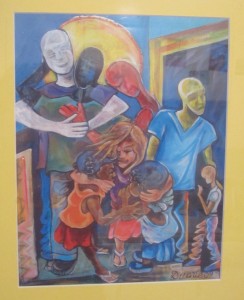

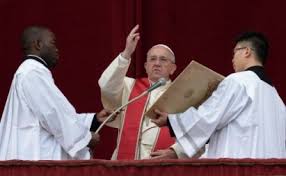 Pope Francis addressed the “City and the World” today in the traditional Urbi et Orbi message as thousands gathered to here him and receive the Christmas blessing. (read it
Pope Francis addressed the “City and the World” today in the traditional Urbi et Orbi message as thousands gathered to here him and receive the Christmas blessing. (read it 

